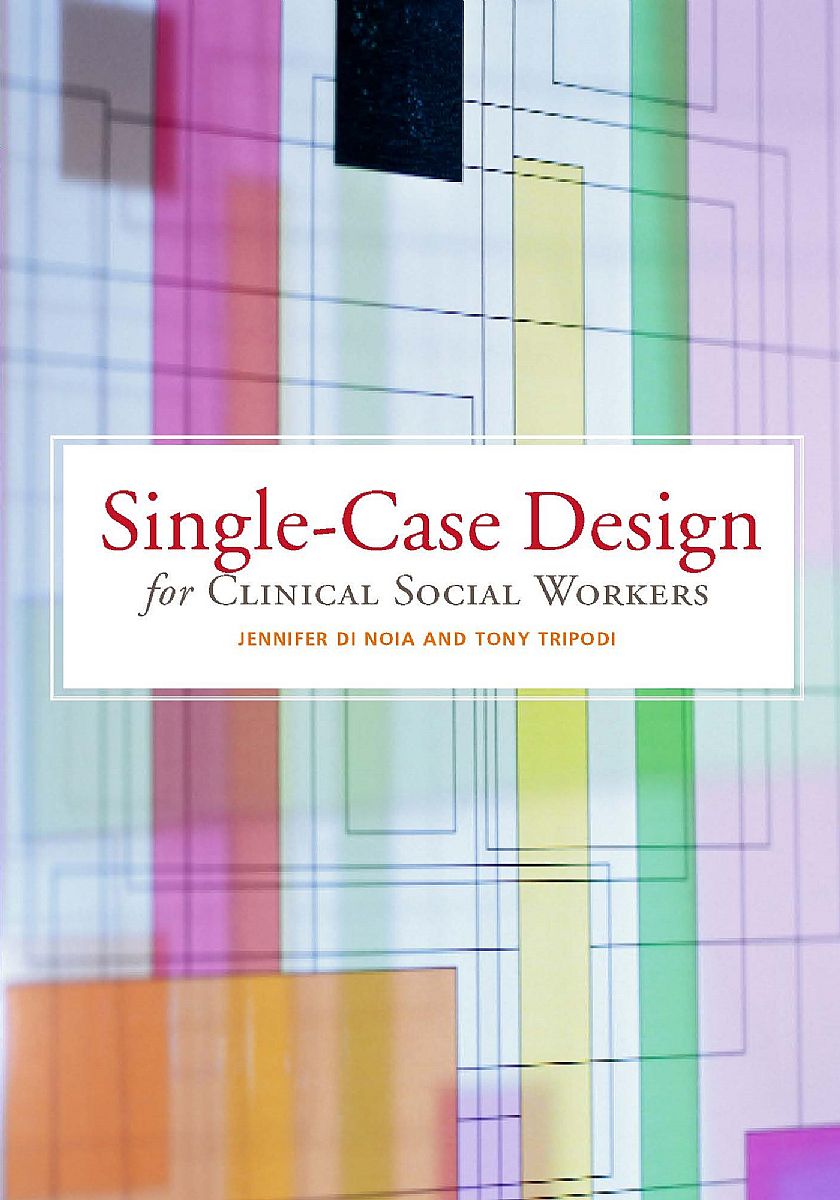
Single-Case Design for Clinical Social Workers, 2nd Edition
: Jennifer Di Noia and Tony Tripodi
Page Count: 196
ISBN: 978-0-87101-381-1
Published: 2008
Can your device download this eBook? Click here before purchasing! eBooks are available in single quantities only.
Single-Case Design for Clinical Social Workers incorporates the paradigm shift to single-case design over single-subject or single system design to focus on a single unit of analysis, that is, an individual, a couple, a family, or a group. The purpose of this text is to introduce single-case design methodology to clinical social workers, students, and field supervisors.
Tripodi and Di Noia have captured every step of the single-case design methodology from assessment and problem formulation to follow-up. The use of definitions, measurement scales, charting and graphing, guidelines, and questionnaires in this text makes it a paramount resource for any prospective or practicing clinical social worker interested in the enhancement of their clients’ well-being and social functioning.
Foreword by James K. Whittaker
Preface and Acknowledgements
Chapter 1: Introduction
Chapter 2: Assessment and Problem Formulation
Chapter 3: Measurement
Chapter 4: Phase 1: Baseline
Chapter 5: Phase 2: Intervention
Chapter 6: Phase 3: Follow-Up
Chapter 7: Design Variations
Appendix 1: Guidelines for Evaluating Single-Case Design Studies
Appendix 2: Index of Self-Esteem (ISE)
Appendix 3: Michigan Alcoholism Screening Test (MAST)
Appendix 4: Client Questionnaire to Monitor Clinical Social Workers’ Implementation of Posthospital Planning
Appendix 5: Follow-Up Questionnaire
Appendix 6: Follow-Up Questionnaire for Tom and His Relationship to Jerry
Appendix 7: Follow-Up Questionnaire about the Intervention and the Clinical Social Worker
Appendix 8: Client Satisfaction Questionnaire (CSQ-8)
Appendix 9: Follow-Up Questionnaire for Client: Assertive Behaviors
Appendix 10: Follow-Up Questionnaire for Client: Excessive Coffee Consumption
Appendix 11: Follow-Up Questionnaire for Jack: Reduction of Negative Remarks to His Father
Appendix 12: Index of Sexual Satisfaction (ISS)
References
Index
About the Authors
Jennifer Di Noia, PhD, LCSW, is associate research scientist at Columbia University School of Social Work, New York City. She has been teaching a course on clinical practice evaluation to graduate social work students for the past 10 years and has published numerous intervention outcome studies.
Tony Tripodi, DSW, ACSW, was dean and is professor emeritus, Ohio State University College of Social Work, and was the visiting Moses Professor at Hunter College School of Social Work (2006-07). He has published extensively on program evaluation, research methodology, and research utilization.
This densely packed yet tightly written volume explores the varieties of single-case designs, their different uses, and the arguments for and against different evaluation pathways…. Ultimately, much of what Drs. Di Noia and Tripodi write about will become incorporated into what is considered “best practices.” For their view of quality, goal-oriented, information-driven practice, fully attuned to consumer feedback and applied in a manner consistent with the core values of social work, we are in the authors’ debt.
James K. Whittaker
University of Washington, Seattle
The purpose of this book is to provide for clinical social workers an introduction to the use of single-case design in clinical practice. The book shows how this methodology can serve as a frame of reference for making clinical decisions relevant to assessment, implementation, and evaluation of treatment and client follow-up through the use of statistical procedures and graphic analysis. The utility of single-case design is illustrated in a variety of clinical situations.
This book also was written for social work students and their supervisors in field practice so that the accreditation standards for evaluating a worker’s practice, established by the Council on Social Work Education, can be adequately implemented.
We wish to acknowledge colleagues and students at Columbia University School of Social Work, University of Michigan, University of Pittsburgh, and Florida International University for their discussions of the topic of single-case design. Many thanks to students enrolled in the fall 2005 Clinical Case Evaluation course at Columbia University School of Social Work for reviewing drafts of the manuscript and providing responsive feedback.
Jennifer Di Noia, PhD
Columbia University, New York
Tony Tripodi, DSW
Ohio State University, Columbus
